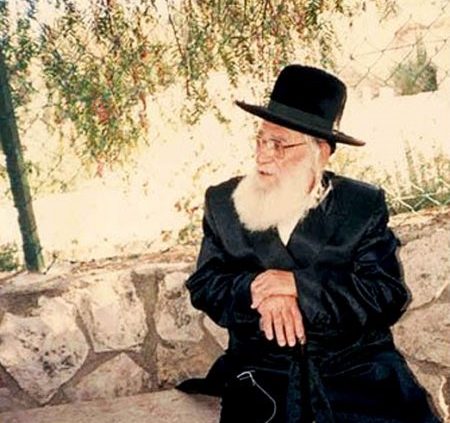🕎 WEDNESDAY PRAYER: YESOD-MAIN READING FOR THIS WEEK – FOR MITZVOT – WE SHOULD ALWAYS DISCERN BETWEEN TORAH AND WORK

READING: SUNSET TUESDAY
Main Reading for KABBALISTIC PRAYER this week, today with THE READING FOR MITZVOT.
ARVUT OF: Sheridan Moreton-Judd.

We Should Always Discern between Torah and Work
Article No. 21, Tav-Shin-Mem-Hey, 1984-85
Baruch Shalom HaLevi Ashlag (The RABASH)
We should always discern between Torah and work. “Torah” stands in and of itself. At that time we cannot speak of a person, but it is as though man is not there at all. Instead, we speak of the Torah in and of itself, which is regarded as the names of the Creator, and we note its importance, namely of whom we speak.
That is, we must always remember that we are speaking of the King, how He has placed order and guidance, how His holy names bestow upon the souls, and they will receive them and be able to exist as they reveal them, as it is written, “Who will climb up the mountain of the Lord, and who will rise in His holy place?”
When one pays attention and feels of whom he speaks, that he is speaking of the Creator, but we haven’t the understanding so as to have some connection so we will understand that we are speaking of the Creator, and we must only believe that the whole Torah is the names of the Creator. However, He is dressed either in rules and conducts that one must keep the Mitzvot between man and God or between man and man, or in stories and tales, or they are clothed in the language of Kabbalah and the holy names. At that time we must remember that the internality clothed inside those dresses is only Godliness. This is called “the whole Torah is the names of the Creator.”
Therefore, when we learn Torah we should learn with manners. That is, we must remember of whom we are speaking, and in this way we can draw the light of Torah and feel that “They are our lives and the length of our days.” Naturally, when learning with the above intention, one can be happy because he is attached to the life of lives, which is called “For they are our lives and the length of our days.” This is so because one begins to feel the discernment of “to do good to His creations,” which was the reason for the creation of the worlds.
We must elicit this good from the Torah, and this is regarded as speaking only in praise of the Torah, and do not think at all of man. Therefore, when learning Torah, a person is in wholeness, according to the rule, “Where one thinks, there he is.” One should receive vitality from this time to the rest of the day, for this is called “A separate time for Torah, and a separate time for prayer,” since they contradict one another.
Work time is something altogether different. Work relates specifically to man, while Torah relates specifically to the Creator, which is called “the Lord’s Torah.” However, work relates specifically to man because man must work, as it is written, “For man is born for labor.”
Since man is the creation, and creation is deficiency, which his existence from absence, and that existence, called “desire to receive,” must be satisfied, since this is the purpose of creation. And since there was a Tzimtzum [restriction] on that desire for the purpose of equivalence of form, it is necessary to correct and remove the Tzimtzum on that desire so it can achieve the goal called “His desire to do good.”
To remove the Tzimtzum, we were given the remedy of Torah and Mitzvot [commandments]. This is called, “I have created the evil inclination; I have created the Torah as a spice.” And here, in the matter of work, we should discern is one is advancing toward the goal of removing the Tzimtzum, meaning if there are already sparks of bestowal, meaning that he has already received something from the remedy of the Torah and Mitzvot in the form of cleansing the thought and the desire, and is in a state of self-criticism in matters of work.
But one should not criticize oneself at all in the Torah. Rather, he should learn Torah as is. All we have to do is seek advice how to appreciate the Torah, but the Torah itself is a reality called “the names of the Creator.” It follows that when we learn some laws or morals from the Torah, or even just stories, or the manner of the work, all this is still not regarded as Torah. We only learn this from the Torah, but the Torah itself has no relation to the creature, only to the Creator, since it is the names of the Creator.
That is, the Torah is called “the revelation of Godliness,” and this is called the “internality of the Torah.” What is revealed outside, the laws and morals, and manners of work, and stories, these are all called “dresses on the Torah.” This is why they are called the “externality of the Torah.” But the names of the Creator are called the “internality of the Torah.”
According to the above we should ask, “If the Torah in and of itself relates to the Creator, which is Godliness, then it is similar only to interpretation. What can one deduce from learning Torah if he does not understand anything in relation to himself?” Our sages said about this: “Great is the learning that leads to action,” for man certainly needs only actions, as it is written, “Which God has created to do.”
Therefore, “The learning is not the most important, but the action.” To this comes the reply: “Great is the learning that leads to action” (Kidushin, p 40, and Baba Kama 207). In other words, the light of Torah, which is the internality, shines for a person so he will have the strength to do good deeds. This is done by the power of Torah, which gives him the strength to be able to do it, as it is written, “Which God has created to do.”
This is the meaning of what our sages said, “A separate time for Torah, and a separate time for prayer,” for they contradict one another. This is so because while learning Torah, one must think only about the importance of Torah, and not at all about himself. But during the prayer one must first of all have his deficiencies revealed, so he can ask that they will be fulfilled, since there is no deficiency if it is not looked for.
Only in corporeality are the deficiencies revealed, since the deficiencies come from the will to receive, and the will to receive is revealed. This is not so in spirituality, where the whole structure of Kedusha [holiness] is built on the basis of desire to bestow, and because we attribute the desire to bestow to the creature.
It was explained that Malchut, called “will to receive,” desires equivalence of form, called “to bestow.” Therefore, when this matter extends to the creatures, who come after the breaking of the vessels that occurred, and also after the sin of the tree of knowledge, then that deficiency, where one feels that he is lacking the Kli [vessel], called “desire to bestow,” is no longer present.
Instead, one must exert until he feels the lack of the desire to bestow. To the extent that he feels that deficiency he can pray to the Creator to help him, to give him that Kli, that all his concerns will be only that he does not have this force called “desire to bestow. To the extent that he is far from that Kli he should regret and ask for the Creator’s mercy, that He will deliver him and give him that desire.
Moreover, we can say that one should ask the Creator to give him that deficiency, meaning to feel that he is devoid of the desire to bestow, and that this is all that is stopping him from achieving spirituality, since that deficiency does not come by itself.
It therefore follows that the Creator should give man both the Kli and the light. By this we can interpret the verse, “You have fashioned me from behind and from before.” “From behind” means the Kli; “from before” means the anterior, which is the filling. It turns out that the light, as well as the Kli all come from Him.
This is the meaning of what our sages said (Kidushin, 30), “Our sages said, ‘Vesamtem [and you shall put] means Sam Tam [complete potion]; the Torah is as a potion of life.’” This is what the Creator said to Israel: “My sons, I have created the evil inclination; I have created for it the Torah as a spice. If you engage in Torah, you will not be given to its hand.” The thing is that the light in the Torah, which is the internality of the Torah, reforms him. However, we must intend to receive the light of Torah during the study, as is explained in the “Introduction to the Study of the Ten Sefirot,” item 17.